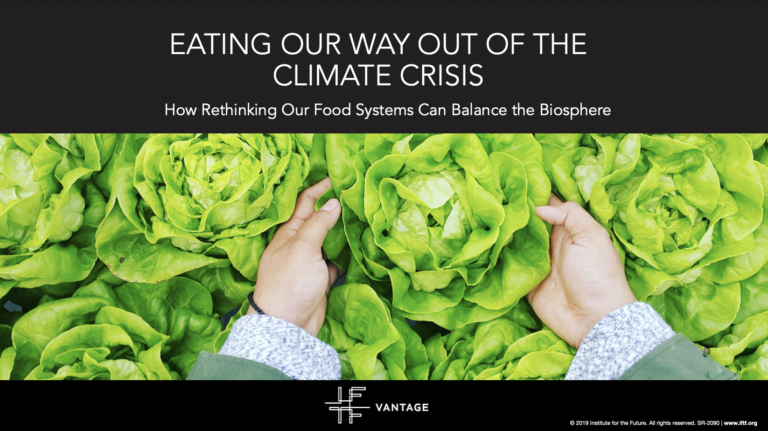Our climate crisis poses an urgent and all-encompassing existential challenge to life as we know it. Food systems are at the fore of this global dilemma. We can eat our way into climate catastrophe, or we can eat our way out of it.
The food we grow, harvest, process, distribute, and eat is intimately linked with our environment. On one hand, according to the Intergovernmental Panel on Climate Change, nearly a quarter of global greenhouse gas (GHG) emissions come from the agriculture sector and resulting land use. On the other hand, droughts and floods severely impact farmers and their land. Temperature changes affect crop growth and reproduction cycles, and new research suggests global warming causes key crops to produce more carbohydrates that can crowd out the production of nutrients. Meanwhile, many pests and weeds thrive in hotter and wetter conditions, making agricultural production all the more challenging and potentially more resource intensive.
Given their impact on our individual and planetary health, food systems will take center stage of the global climate change discourse. Food will no longer be seen as a problem for our climate future, but instead, as a delicious and resilient solution ripe for harvest.

Paying the Real Price of Food
Toward true cost accounting

Simulating the Foodscape
Toward modeled environments

Amplifying Food Influencers
Toward a new breed of plant-based tastemakers

Discovering Soil as the Secret Ingredient
Toward more delicious food from healthier dirt

Climate-Proofing Culinary Traditions
Toward resilient food cultures

